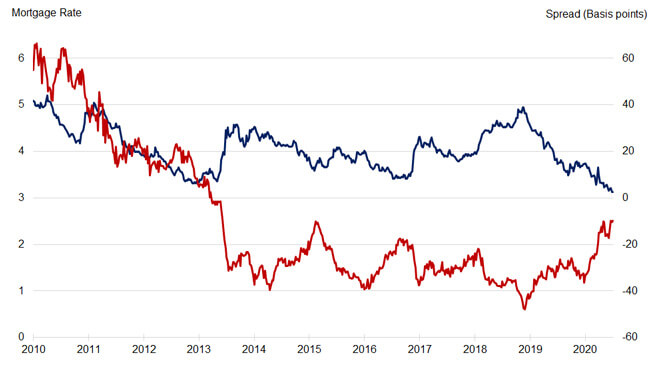Jumbo Loan: Affordable Rates and Flexible Terms for Costly Characteristics
Jumbo Loan: Affordable Rates and Flexible Terms for Costly Characteristics
Blog Article
Checking Out the Perks and Qualities of Jumbo Loans for Your Next Home Acquisition Choice
As the property market evolves, comprehending the complexities of jumbo financings becomes progressively pertinent for potential buyers taking into consideration high-value residential properties. These loans not just help with significant financing yet also use a number of benefits, such as competitive rate of interest and the possible elimination of private home mortgage insurance. The path to safeguarding a jumbo financing is laden with certain eligibility requirements that might challenge some purchasers. To totally value how big loans can affect your home purchase approach, it is necessary to discover their vital features and benefits in better detail.
What Is a Jumbo Loan?

Jumbo finances are usually utilized by purchasers looking for to buy high-value buildings or homes in pricey markets. jumbo loan. Offered the larger amounts borrowed, lenders normally enforce more stringent debt needs, consisting of higher credit report, lower debt-to-income proportions, and larger deposits. The passion prices on big fundings might be slightly greater than those on adjusting finances, showing the raised risk for loan providers
Additionally, the authorization process for a jumbo lending can be extra intricate and time-consuming, as loan providers call for substantial documentation to evaluate the borrower's economic stability. Recognizing these subtleties is necessary for prospective house owners taking into consideration a big loan for their residential property financing requirements.
Secret Advantages of Jumbo Financings
One substantial advantage of big financings is their capacity to fund higher-priced homes that exceed adapting car loan restrictions. This function makes them an attractive alternative for purchasers looking to buy high-end homes or properties in high-cost locations where prices usually exceed traditional loan limits.
Furthermore, jumbo lendings typically include versatile terms and competitive interest prices, enabling customers to tailor their financing to fit their distinct financial situations. jumbo loan. This flexibility can include options for adjustable-rate home loans (ARMs) or fixed-rate car loans, giving buyers with the capability to handle their monthly payments according to their preferences
An additional benefit is that jumbo loans do not need exclusive mortgage insurance (PMI), which can substantially reduce the total cost of the financing. With PMI usually being a significant cost for conventional fundings with low down repayments, avoiding it can cause significant cost savings gradually.
Additionally, consumers of jumbo lendings commonly have access to greater funding amounts, allowing them to purchase residential properties that fulfill their way of living needs. This access empowers buyers to act decisively in affordable property markets, safeguarding their wanted homes better. Overall, jumbo car loans supply important advantages for those looking for to fund costs buildings.
Eligibility Demands for Jumbo Loans
Jumbo loans come with certain eligibility requirements that potential consumers should fulfill to safeguard funding for high-value buildings. Unlike standard car loans, which have set limits based upon the conforming lending restrictions established by government-sponsored entities, jumbo loans surpass these thresholds, necessitating stricter criteria.

Additionally, jumbo fundings frequently necessitate a substantial down repayment, frequently ranging from 10% to 20% of the purchase price, depending upon the lender's plans and the consumer's financial circumstance. Cash books are also considered, with lots of lenders anticipating customers to have several months' well worth of mortgage repayments readily available. Last but not least, extensive documentation of earnings and properties will be needed to support the finance application. Fulfilling these eligibility needs can position customers positively in securing a big loan for their preferred home.
Contrasting Jumbo Car Loans to Conventional Car Loans
Understanding the differences between jumbo lendings and traditional lendings is vital for property buyers browsing the premium real estate market. Jumbo loans exceed the conforming lending limits set by the Federal Housing Financing Company (FHFA), which means they are not eligible for purchase by Fannie Mae or Freddie Mac. This causes various underwriting criteria and needs for borrowers.
In contrast, conventional car loans generally adhere to these limits, enabling a more streamlined authorization process. Jumbo loans frequently require more stringent debt ratings, larger down payments, and better monetary reserves. For circumstances, while a traditional car loan might need a down payment of as low as 3% to 5%, jumbo lendings typically necessitate a minimum of 10% to 20%.
Passion prices on big car loans might vary from those of standard loans, typically being slightly higher because of the increased try this site risk lenders presume - jumbo loan. However, the capacity for considerable financing can be advantageous for purchasers looking for luxury residential properties. Ultimately, understanding these distinctions makes it possible for homebuyers to make educated choices, straightening their funding options with their special acquiring requirements and economic conditions
Tips for Protecting a Jumbo Financing
Securing a jumbo lending calls for careful planning and preparation, as loan providers commonly enforce more stringent needs contrasted to conventional fundings. To boost your opportunities of approval, begin by inspecting your credit rating and addressing any kind of concerns. A rating of 700 or higher is commonly preferred, as it shows creditworthiness.
Next, collect your economic documentation, consisting of income tax return, W-2s, and financial institution declarations. Lenders generally need extensive proof of income and assets to assess your capability to pay back the funding. Maintaining a reduced debt-to-income (DTI) ratio is also important; objective for a DTI below 43% to improve your application's competition.
Furthermore, consider making a larger deposit. Many lending institutions look for a minimum of 20% down for jumbo lendings, which not just minimizes your car loan quantity yet additionally signals monetary security. Engaging with a well-informed mortgage broker can provide very useful understandings right into the process and help you browse different lending institution alternatives.

Final Thought
In summary, big fundings present considerable benefits for buyers looking for residential or commercial properties that go beyond standard car loan restrictions. With competitive rate of interest, adaptable terms, and the lack of personal home loan insurance coverage, these loans can lead to substantial expense savings. Nevertheless, prospective borrowers should browse stricter eligibility standards to get positive terms. Thorough understanding of both the demands and benefits associated with big loans is essential for making notified home purchase decisions in an affordable actual estate market.
The interest prices on big car loans might be somewhat greater than those on conforming loans, showing the enhanced threat for lenders.
While a conventional car loan could need a down settlement of as little as 3% to 5%, jumbo financings usually demand a minimum of 10% to 20%.
Interest rates on big car loans may vary from those of traditional loans, commonly being slightly greater due to the enhanced risk loan providers think.Safeguarding a big finance needs careful preparation and preparation, as lending institutions commonly enforce stricter requirements contrasted to standard lendings. Several lenders seek at the very least 20% down for jumbo finances, which not just lowers your financing amount yet additionally signals financial security.
Report this page